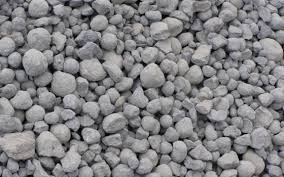OFAC Announces Yet Another Enforcement Action – Cement Clinker Company Settles for Violations of Iran Sanctions Program

OFAC is definitely off to a fast start this year – it recently announced its fourth enforcement action for 2019. So far, OFAC has collected over $7 million in civil penalties.
While this may not appear to be a lot of money in civil penalties, it is important to remember the consequences of an OFAC settlement and scrutiny for future violations, restrictions on exports, and damage to a company’s reputation. Perhaps it is not the civil penalty that hurts a company but the overall damage to a company’s reputation and its relationship with its customers, vendors and suppliers, its shareholders (if publicly-owned), and its stakeholders.
OFAC reached a settlement with ZAG IP, LLC, a US-based company, in which ZAG agreed to pay a penalty of $506,250 for five apparent violations of the Iran Sanctions Program. (Copy Here). Between July 2014 and January 2015, ZAG purchased in five separate transactions 263 thousand metric tons of Iranian-origin clinker from a company based in the United Arab Emirates and then resold it to a company in Tanzania.

OFAC alleges that ZAP knew that the clinker was sources from Iran. The value of the shipments was almost $15 million.
For our own education, clinker is a binder powder used in many cement products. Clinker is traded internationally in large quantities. Cement manufacturers use it to make various cement-based products.
ZAP voluntarily disclosed the apparent violations. In April 2014, ZAP signed a contract with the Tanzania country in which ZAP agreed to supply approximately 400,000 metric tons of clinker manufactured by a company in India.
In June 2014, the Indian supplier sent an email to ZAG;s Managing Director of Asia Pacific, Middle East and East Africa Regions notifying ZAG that it would not be able to supply ZAG with sufficient cement clinker by a July 5, 2014 shipping date. ZAG attempted to reschedule the date for its first shipment but the Tanzanian company objected to any delay and threatened to cancel the contract.
The ZAG Managing Director found a business contact and trading company in the UAE capable of providing Iranian-origin cement clinker. ZAG’s Managing Director agreed to purchase the cement clinker and mistakenly relied on the UAE company’s representation that the cement clinker was not subject to the Iran Sanctions Program. The ZAG Managing Director also knew that the cement clinker was being shipped from an Iranian port.

OFAC specifically cited ZAG’s deficient due diligence process for review and approval of the transactions; the fact that ZAG;s senior management knew that ZAG was purchasing and reselling goods of Iranian origin; ZAG is a commercially sophisticated company; and ZAG did not have an effective OFAC compliance program in place that was commensurate with the level of risk. As part of its remediation effort, ZAG developed and implemented a U.S. Export Controls and Economic Compliance Manual and appointed a sanctions compliance officer.
OFAC underscored that the enforcement case: “demonstrates the importance for companies operating in high-risk industries (e.g., international trading) to implement risk-based compliance measures, especially when engaging in transactions involving exposure to jurisdictions or persons implicated by U.S. sanctions. It is essential that companies engaging in international transactions consider and respond to sanctions-related warning signs, such as information that goods originating from, being loaded or unloaded at ports located in, or trans-shipping through, countries or regions subject to comprehensive U.S. economic and trade sanctions.”















